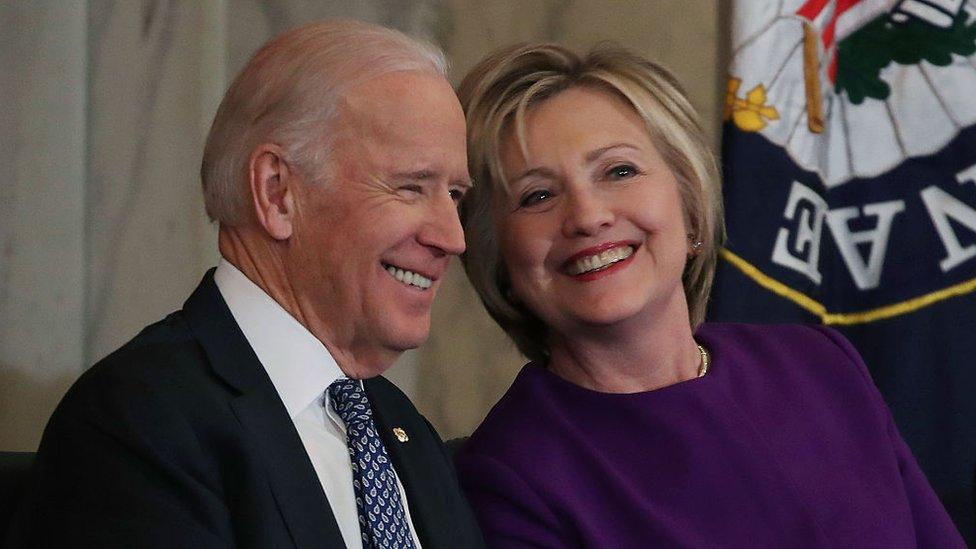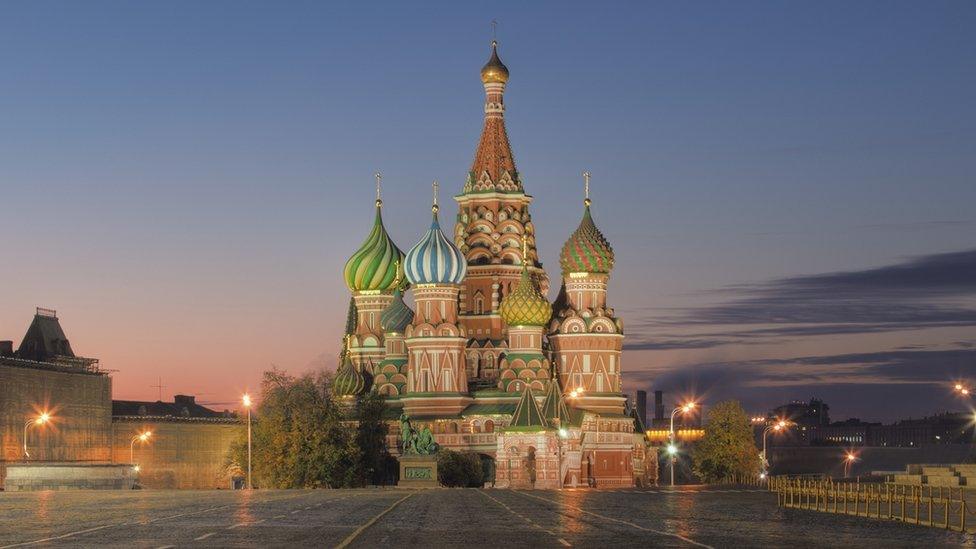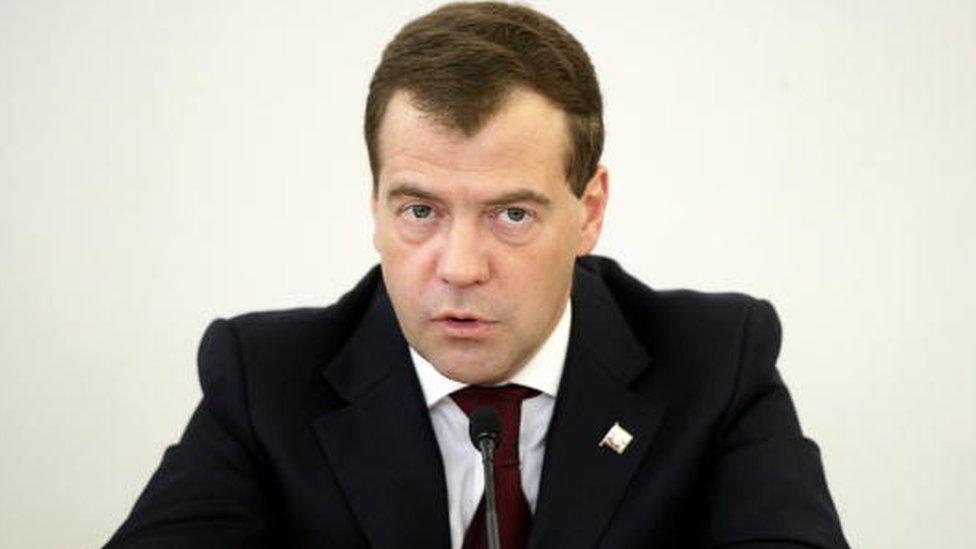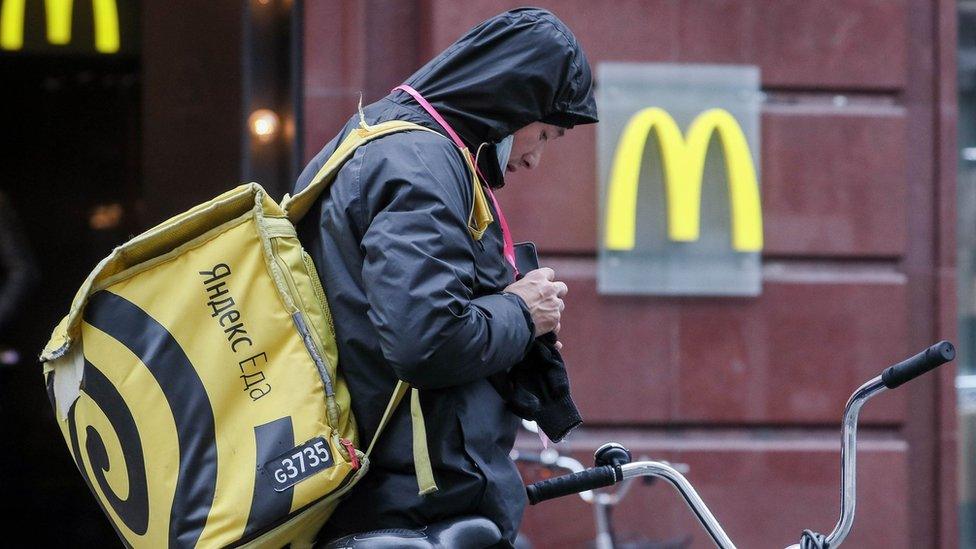Russia sanctions Joe Biden, Hillary Clinton and others
- Published

Joe Biden and Hillary Clinton in 2016
Russia's foreign ministry says it has imposed sanctions on US President Joe Biden and 12 other US officials.
The list includes Secretary of State Antony Blinken, Defence Secretary Lloyd Austin, press secretary Jen Psaki and other members of the administration.
But it also includes two surprises: former Secretary of State Hillary Clinton and Mr Biden's son Hunter.
The measures block their entry into Russia and freeze any assets held in the country.
However, the ministry has said the sanctions will not impede necessary high-level contacts for the affected individuals.
Other names on the list are:
Chairman of the Joint Chiefs of Staff Mark Milley
National Security Adviser Jake Sullivan
Deputy National Security Adviser Daleep Singh
US Agency for International Development (USAID) Administrator Samantha Power
Deputy Secretary of the Treasury Wally Adeyemo
President of the Export-Import Bank of the US Reta Jo Lewis
The ministry has said it is applying sanctions "on the basis of reciprocity".
Russia is now the most sanctioned country in the world.
Western countries have already sanctioned top Russian officials, including President Vladimir Putin, Foreign Minister Sergei Lavrov and Kremlin press secretary Dmitry Peskov.
On Tuesday, the US announced sanctions on 11 Russian defence leaders and signalled that it could levy sanctions against Alexander Lukashenko, the President of Moscow-allied Belarus.
Earlier, the UK slapped sanctions on another 370 Russian individuals, including former Russian leader Dmitry Medvedev.
President Biden is due to travel to Europe next week to attend an emergency Nato summit in Brussels where he will assert Washington's "iron-clad" backing to its allies, the White House said on Tuesday.

US-Russia relations are at a post-Cold War nadir

Hillary Clinton can abandon dreams she may have had of buying a vacation dacha in Sochi.
Any Joe Biden post-presidency plans for starting a business in Moscow will have to be shelved.
Jokes aside, the Russian "stop" order placed on the US President, senior White House staff and - interestingly - a former secretary of state who has not held public office in nine years is a symbolic but not particularly consequential reprisal for the staggering sanctions the US and allies have imposed on Russia. It's not like any of the listed Americans had significant financial interests in Russia.
The move is a reflection, however, of the growing chasm between the US and Russia in the wake of the latter's invasion of Ukraine.
Prohibiting the top American diplomat, Secretary of State Antony Blinken, from even setting foot on Russian soil suggests relations between the two nations are at a post-Cold War nadir.
That has very real consequences outside of the Ukrainian conflict, as the US and Russia had hoped to co-operate on Iranian nuclear negotiations, counterterrorism, global warming and other pressing international issues. Chances of that happening now are increasingly dim.

- Published23 February 2024

- Published15 March 2022

- Published13 March 2022
